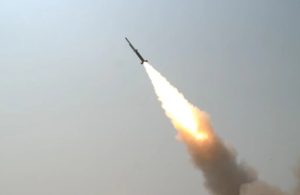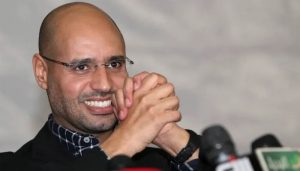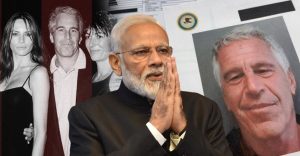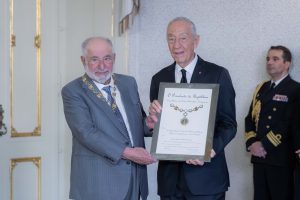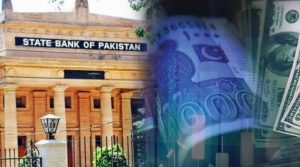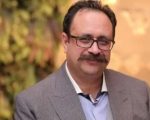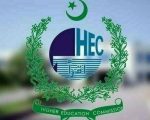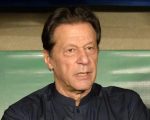He started out as a communist but then romanced with the Rashtriya Swayamsevak Sangh (RSS), a Hindu nationalist party following radical ideas about religious and communal minorities in India. He marched on the streets of Delhi in 1984 demanding the army go and bomb Golden Temple – Sikhism’s holiest site – which eventually happened in the shape of Operation Blue Star and led to over 700 casualties.
He was charged for patronizing violent attacks on the Babri Masjid (Babri Mosque) that was demolished by a gathering of more than 200,000 RSS militants in December 1992, followed by communal riots all across the South Asian nation, which claimed over 1,000 lives.
The Chittisinghpura Massacre, in which 35 Sikhs were gunned down in Indian occupied Kashmir in March 2000, also captures the appalling legacy of Atal Bihari Vajpayee, who breathed his last after prolonged illness today.
Still, the 93-year-old has passed away as a “legend”. For next seven days, millions of Indians will mourn Vajpayee’s death while the national flag will be flown at half-mast throughout the country.
His supporters say Vajpayee oversaw India’s growth into a swaggering regional economic power, while critics accuse him and his party of stoking public fears of India’s large Muslim and Sikh minorities.
“If India is not secular, then India is not India at all,” he once said. However, like any other champion of Hindutva, Vajpayee only kept pushing forward his agenda of empowering extremist elements against the minorities.
BABRI MASJID DEMOLITION
For his shameful silence over the dreadful events of 1992, the Justice Manmohan Singh Liberhan Commission – constituted to look into the demolition of Babri Masjid – strongly indicted Vajpayee, LK Advani and 66 others in 2009, calling them the “pseudo-moderate” leadership of the BJP.
The campaign wave escalated when LK Advani organised a rath yatra to Ayodhya, culminating in the demolition of the 400-year-old mosque in the city of Ayodhya in Uttar Pradesh.
The long-standing dispute between Muslims and Hindus is over whether the mosque was built on top of a Ram temple, after demolishing the latter it in the 16th century.
On one hand, the land is considered sacred among Hindus as it is believed to be the birthplace of Lord Ram. On the contrary, Muslims argue that the land houses the Babri mosque.
Twenty six years on, no one has been punished for the crimes perpetrated by the extremist Hindu organizations in India.
THE CHITTISINGHPURA MASSACRE
Some 18 years ago, 35 Sikhs were gunned down in a village of occupied Kashmir at a time when Atal Bihari Vajpayee was in the top office.
Some 40 to 50 unidentified gunmen, who descended on the village of Chittisinghpura Mattan, 70km south of the state capital Srinagar, ordered the men out of their houses before shooting them at point-blank range. A crowd of more than 1,000 people had gathered to take part in the religious ceremonies of India’s minority Sikh community.
The massacre coincided with the visit of United States president Bill Clinton to India, the first visit by a US President in 22 years.
Till this day, the Indian government asserts that the bloodbath was carried out by militant groups Lashkar-e-Taiba and Hizbul Mujhaideen.
But, in the hours immediately after the massacre in March 2000, the US condemned the killings but refused to accept the Indian government’s accusation that it was the work of Pakistani Islamist groups.
Moreover, in an introduction to a book written by Madeleine Albright titled The Mighty and the Almighty: Reflections on America, God, and World Affairs (2006), she accused “Hindu militants” of perpetrating the act.
The then authorities blamed the gory incident on separatist militants, whom the country’s army and J&K police claimed to have killed in an encounter five days later.
The Economic Times reported that “The CBI had in 2006 indicted five men of the Rastriya Rifles for allegedly killing five civilians, of whom three were dubbed as Pakistani terrorists responsible for the massacre of 36 Sikhs at Chittisinghpura area of Anantnag district. Two other civilians were allegedly claimed to be unknown terrorists.”
In 2017, Retd Lt Gen KS Gill, who was part of the investigation, in an interview to Sikh News Express, told Journalist Jasneet Singh that the Indian Army was involved in the massacre and the report had been submitted to LK Advani who was the Home Minister in the National Democratic Alliance (NDA) government then.
https://www.youtube.com/watch?time_continue=1833&v=aXivbPvkSzE
GUJARAT RIOTS
In 2002, massive riots in Gujarat state of India, mostly targeting Muslims, left 1,000 dead and displaced hundreds of thousands and BJP government under Vajpayee was widely and strongly criticised for inefficient handling of the violence.
Vajpayee’s supporters insist the statesman maintained a distance from the hardcore Hindutva ideology of the BJP and its ideological fountainhead RSS, being part of both while speaking his mind.
As prime minister, Vajpayee had visited the riot-hit Gujarat in the first week of April 2002 and gone to the camps housing the victims of riots.
Days after, Vajpayee famously told then chief minister Narendra Modi he must follow his “raj dharma” of ensuring no discrimination on the basis of caste, creed or religion.
Vajpayee’s comments at a press conference, with Modi by his side, had triggered speculation that the chief minister may be on his way out.
Modi, who is the incumbent prime minister, then told Vajpayee that he was indeed following his “rajdharma”.
In his reply to Modi, Vajpayee had said, “Mujhe vishwash hai ke Modiji bhi wohi kar rahe hai,” (I am confident that Modi is doing that).
Modi, as is widely known, was a core RSS man who had become the chief minister of a state without being a legislator or an MP.
Despite much hue and cry, Vajpayee never fully condemned the violence and kept mum, opting against a confrontational stance against BJP’s poster boys LK Advani and Narendra Modi.
He perceived the Gujarat riots and his failure to rein in Modi as being responsible for the BJP losing the 2004 elections.
After all, he was a politician not a saint.

